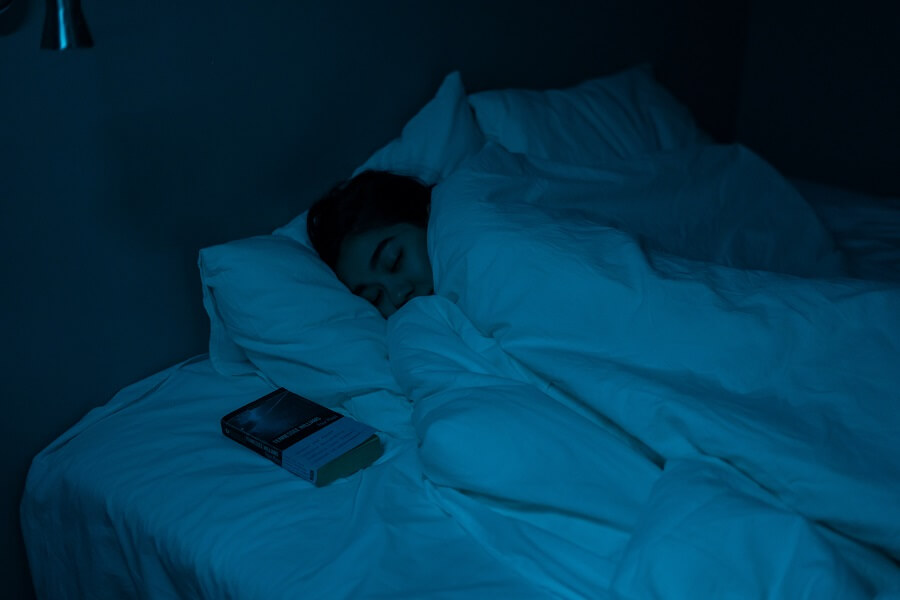When most people think of bedtime routines, chances are that images of toddlers settling in for storytime come to mind. And while nighttime routines are often a non-negotiable for the little ones, most people don’t know or realize that bedtime routines should be non-negotiable for adults, too — perhaps even more so.
Essentially, bedtime routines for children serve one clear purpose: to get our favorite little bundles of energy to wind down and chill out enough to be able to fall asleep. And they exist for good reason. Kids have a lot going on day to day, with learning the English language and figuring out how to walk and all. With all that excitement, who can sleep?
And for us adults, work issues, arguments with a spouse, or doom scrolling through Twitter may not be exciting in a positive way, but these things can certainly work us up enough to affect our sleep. The good news is adding a bedtime schedule to your wellness routine can be infinitely helpful.
Why do adults need a bedtime routine?
Long story short, whether you’re 3 or 30 years old, nighttime routines are important at every age. When done right, your nightly routine can help you wind down from your day. Not only can it clear your mind and calm your thoughts, but it can help you take your beauty sleep to the next level.
The most important thing to know about nighttime routines is that they serve as a set of habits that help your brain understand when it’s time to go to sleep. Performing the same activities night after night will entrain your brain to recognize those activities and recognize that sleep is soon to follow.
How to establish a bedtime routine
Nighttime routines will differ from person to person, and understandably so. Everyone relaxes in their own way, and what works for one person may not work for another. For example, you may like to indulge in a warm bubble bath every night, while your partner is more of a cold shower type.
Similarly, reading is a wonderful way for some people to relax and unwind, whereas others would prefer to do anything but crack open that copy of “Anna Karenina” that’s been collecting dust on their nightstand for years.
The point is, to each their own. Bedtime routines can be very personal; the key is to find what works for you. The only rules are to keep it consistent and skip activities on your screens or devices that cause stress or anxiety.
Set a bedtime and stick to it

One of the most important things to know about sleep routines is that they require consistency. That means going to bed at the same time every night and waking up at the same time every morning — even on weekends and holidays.
Maintaining a consistent sleep-wake cycle will keep your circadian rhythm on track, and eventually, it’ll become so fine-tuned that your body will expect (and be ready for) sleep at the appointed time.
Put the phone down and step away
Devices have become ingrained in our lives — so much so that it often feels like our phones are glued to our hands. Unfortunately, the 24/7 connectivity to smartphones and screens often comes at a steep price — our sleep.
Not only can devices (and the information they offer) contribute to stress and anxiety that get in the way of our shuteye, but research shows that the blue light emitted from these devices can powerfully suppress melatonin production, further delaying sleep.
So skip the screens at night or, at the very least, power down an hour before you hit the hay.
Have a light snack
While heavy meals are notorious for meddling with your sleep, hunger is too. If you’re feeling a little peckish come bedtime, think about adding a light snack to your nighttime routine. While you should avoid sugary treats, a piece of fruit or yogurt is an excellent idea for a bedtime snack. Likewise, caffeine and alcohol are no-nos, but herbal teas tame a hungry belly and relax you enough to sleep peacefully.
Dim the lights
Our circadian rhythm is deeply dependent on our exposure to natural light. While getting out and enjoying the daylight is a great way to wake up, shake off the sleep inertia, and feel more alert, light exposure at night can be problematic. Too much light at night can trick your brain into thinking it’s daytime. To ensure your brain is getting the proper signals (aka it’s time for bed), dim the lights in your bedroom in the evening. The low lights convey a very clear message — that bedtime is near.
Try a warm bath

Research shows that a drop in body temperature can contribute to better sleep. To that end, while it may seem counterintuitive, a warm bath might be just what the sleep doctor ordered. The science here is actually quite simple: The warm bath will likely give your body temperature a brief boost (during the bath and immediately after), but ultimately, the moisture on your skin will evaporate and cool you down. Don’t forget the suds.
Listen to music
If you need some ambient noise, skip the TV or nightly news and try some soothing music instead. If you need a jumping-off point, music platforms like Apple Music and Spotify both have a great selection of sleep playlists.
Clear your mind
Clearing your mind might sound difficult, but it doesn’t have to be. Simply put, this should be an activity or process that switches your focus from the insane to the mundane, ultimately calming you to sleep. If you’re unsure how to clear your mind, you could try:
- Light stretching
- Journaling
- Meditating
- Reading
- Light yoga
If you’re sensing a common thread here, you’re right. The key to a good nighttime routine is relaxation, whatever that means for you. You can do all of the above, a few, or none. The choice is yours. Just find a way to remove the chaos and the noise before you get comfy under the covers. When you do, the hope is that you’ll be off to dreamland in no time — as soon as your head hits the pillow.





